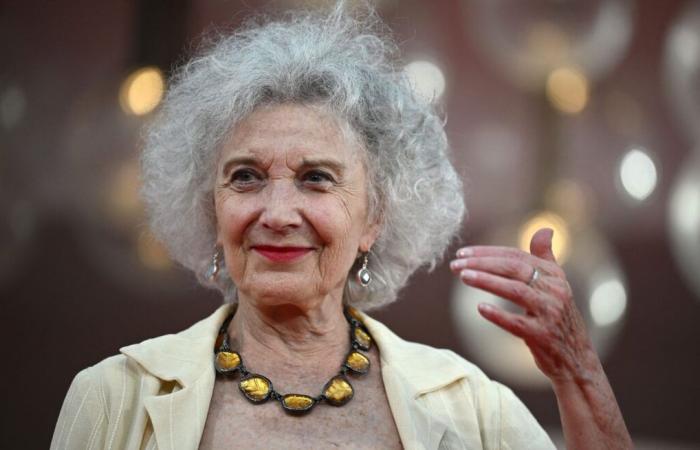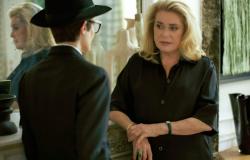Theater and film actress with a career spanning 75 films, Marisa Paredes, who achieved international fame filming six times under the direction of director Pedro Almodóvar, has died at the age of 78.
“It’s like waking up from a bad dream, but it’s still a bad dream. I have difficulty assimilating that Marisa is dead,” the Spanish director reacted on Tuesday on public television RTVE.
“Spanish cinema loses one of its most iconic actresses,” praised the Spanish Cinema Academy, which the actress presided between 2000 and 2003, on X.
Coming from a working-class background, Marisa Paredes began her career as a teenager but it was under the direction of Pedro Almodóvar, a promising young Spanish director that she made her name.
Their first collaboration dates back to 1983 with Into the darkness where she plays “Sister Excrément”, a nun high on amphetamines who sleeps on nails and walks on broken bottles.
She then broke through internationally with Stiletto heels (1991), César for best foreign film, in the role of Becky del Paramo, peroxide diva and egocentric mother of Victoria Abril whom she abandoned as a child.
“Absolute confidence”
Symbolically, it is by broadcasting on Stiletto heelswhen she performs think of me on stage, that the Cannes Film Festival paid tribute to the actress.
Main character of The flower of my secretshe radiates the screen as the author of a romantic novel devastated by her husband’s departure to Bosnia.
“Marisa placed absolute trust in me and gave me everything,” Almodóvar confided to the French daily Liberation in 1995.
Rewarded among others by the national cinematography prize and an honorary Goya in 2018, the actress has also participated in several international productions such as Life is beautifulby the Italian Robert Benigni, or The Devil’s Backboneby Mexican Guillermo del Toro.
“Sorry to hear the news of the death of Marisa Paredes, one of the most important actresses of our country,” reacted Spanish socialist Prime Minister Pedro Sánchez on X.
“Her presence in cinema and theater and her commitment to democracy will be an example for future generations,” he added, referring to the actress’s progressive struggles.
“Great lady of interpretation”
Born into a working-class family in Madrid on April 13, 1946, she grew up under Francoism in a concierge’s lodge, the fourth child in a “poor” family, she confided in the columns of a supplement of the Spanish daily The Country in February 2024.
With an authoritarian father, she experienced “mistreatment, humiliation… How can you not become a feminist? “, said the actress.
She left school at 11 and started working, but dreamed of becoming an actress. “My vocation was born with me […]but the neighborhood where I lived also played a role,” the woman who lived near the National Theater as a child recently explained to the Spanish Film Academy.
At 15, the young girl with green-gray eyes landed her first role in a play by José Lopez Rubio. From then on, she never stopped playing, from García Lorca to Beckett via Ibsen and Chekhov, which she also performed for television.
“I have always been given special characters,” she confided in the interview given to the supplementThe Country in February. “I was lucky because I don’t look Spanish […] When television was cultured and it broadcast theater, I played all the dramas of Chekhov, Dostoyevsky, Ibsen. It was the Russian soul. The great drama.”
She has a daughter with the filmmaker Antonio Isasi Isasmundi, Maria Isasi, who herself became an actress.
“A great lady of interpretation”, greeted on X the Spanish actor Antonio Banderas, who shared the screen with her in The skin I live in. “You are leaving us too soon […] Have a good trip,” reacted on Instagram his compatriot Penelope Cruz, who also played alongside him in an Almodóvar film, All about my mother.
In addition to her prolific artistic career, Marisa Paredes was involved in various causes. She notably chaired the Cinema Academy during the 2003 Goya gala, marked by protests against Spain’s support for the war in Iraq.






